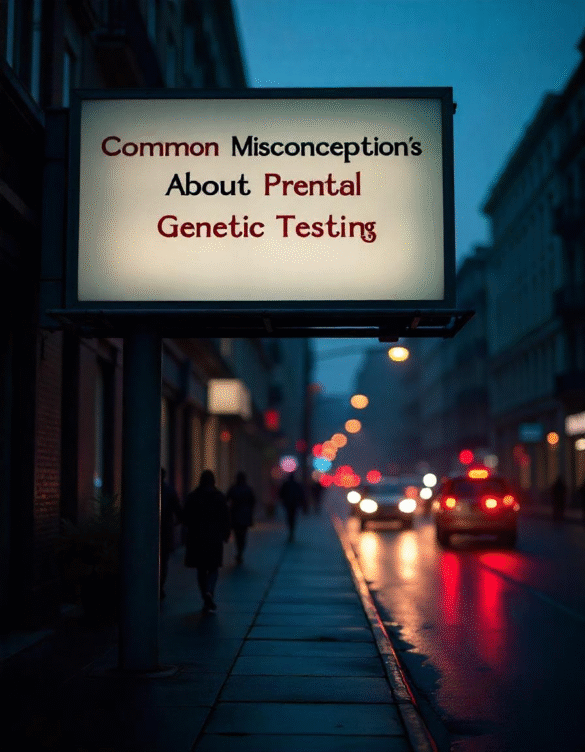Prenatal genetic testing can be a powerful tool for expectant parents, but myths and misunderstandings often cloud the decision-making process. Let’s clear up some of the most persistent misconceptions—so you can make informed choices without unnecessary fear or confusion.
Myth #1: “Testing Is Only for Older Moms”
✅ Fact: While advanced maternal age (35+) increases certain risks, genetic conditions can occur at any age. Many younger parents choose testing for:
✔ Early reassurance
✔ Family history concerns
✔ Preparation for potential health needs
Myth #2: “The Tests Are Dangerous for the Baby”
✅ Fact:
- NIPT (Non-Invasive Prenatal Testing) is just a blood draw from the mother—zero risk to the baby.
- Diagnostic tests (CVS/amnio) carry a small risk (1 in 500 to 1 in 900), but they’re only recommended when medically necessary.
“I avoided testing at first because I was scared of harming my baby—I had no idea NIPT was completely safe.” — Sarah, 28
Myth #3: “A Normal Result Guarantees a Healthy Baby”
✅ Fact: Prenatal tests screen for specific conditions (like Down syndrome), but they can’t detect:
❌ Heart defects
❌ Autism
❌ Physical birth differences (cleft lip, etc.)
❌ Many other health concerns
Always follow up with recommended ultrasounds and newborn screenings.
Myth #4: “Testing Is Only About Finding Problems”
✅ Fact: Many parents use testing for:
✔ Early bonding (finding out the baby’s sex sooner)
✔ Peace of mind (especially after fertility struggles)
✔ Planning (even if results are normal)
Myth #5: “Insurance Never Covers Testing”
✅ Fact: Many plans do cover testing if:
✔ You’re over 35
✔ You have a family history of genetic conditions
✔ Earlier screenings raised concerns
Tip: Always call your insurer with the exact test name and billing code before proceeding.
Myth #6: “Abnormal Results Mean Termination Is the Only Option”
✅ Fact: Many parents use concerning results to:
✔ Connect with specialists early
✔ Research therapies and support groups
✔ Mentally prepare for their child’s needs
“Our son’s Down syndrome diagnosis helped us find an amazing community before he was even born.” — Mark, 37
Myth #7: “At-Home Gender Tests Are Just as Accurate”
✅ Fact: While some companies market early gender prediction kits:
⚠ Many lack scientific validation
⚠ Results may be misleading
⚠ Only medical-grade NIPT offers 99.9% accuracy after 10 weeks
Myth #8: “If You Test Positive, Your Baby Will Definitely Have the Condition”
✅ Fact:
- Screenings (like NIPT) estimate risk—they’re not definitive.
- False positives happen (especially for rare conditions).
- Diagnostic tests (CVS/amnio) provide confirmation.
Always follow up with additional testing before making decisions.
Myth #9: “Prenatal Testing Can Predict IQ or Personality”
✅ Fact: No test can reveal:
❌ Future intelligence
❌ Temperament
❌ Talents or interests
Your baby’s potential is so much more than their DNA.
Myth #10: “You Don’t Need Testing If Your Ultrasound Looks Normal”
✅ Fact: Ultrasounds and genetic tests check for different things. Some conditions (like Down syndrome) don’t always show physical markers on scans.
Knowledge Is Power—But Only If It’s Accurate
Don’t let myths steer your decisions. Get the facts, ask questions, and choose what feels right for your family.
Need reliable information? Visit Prenatal DNA Testing for expert guidance.
Remember: The best choices come from truth, not fear. 💙

